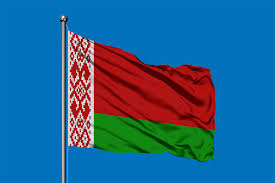Protests against President Alexander Lukashenko continued in Belarus on Friday, as EU ministers prepared to discuss sanctions aimed at curbing a crackdown on post-election demonstrations.
Hundreds of doctors and groups of women formed human chains in the capital Minsk to protest against the re-election of the long-time authoritarian leader Lukashenko.
The pressure on Lukashenko has been further increased by workers striking in numerous state-owned companies throughout the country.
European Commission President Ursula von der Leyen demanded sanctions on Belarusian officials “who violated democratic values or abused human rights”.
“I am confident today’s EU foreign ministers’ discussion will demonstrate our strong support for the rights of the people in Belarus to fundamental freedoms and democracy,” she wrote on Twitter.
The 27 ministers are set to meet on Friday afternoon. The EU has in previous years already sanctioned some officials and imposed an arms embargo.
The Czech Republic, Poland and Lithuania, former Eastern Bloc states, have led the calls for EU action on Belarus.
“We cannot wait. The Belarusian people need our immediate help,” Czech Prime Minister Andrej Babis said in a statement on Twitter.
About 1,000 of the 7,000 people detained during protests were reportedly freed on Friday morning.
Many of those released said they were severely mistreated.
They recounted the lack of food and space in prison cells and showed wounds and bruises, according to local media and videos and photos circulating early on Friday.
Several people had to be taken to hospital immediately after being released, local media reported.
Interior Minister Yury Karayev apologised to citizens on state television for the arrest of many innocent people.
A spokesperson for the presidential office said Lukashenko would address the situation in a speech later on Friday.
Lukashenko, 65, has led a violent police crackdown in the last five days against protesters calling for his resignation, as they believe the election was rigged.
The president has ruled the former Soviet republic for a quarter century, tolerating little dissent.
Belarus, whose closest ally is neighbouring Russia, is one of the poorest countries in Europe and maintains an economic structure similar to its Soviet predecessor state. Belarus’ economy is dominated by massive state-owned companies.
A protester whose father was temporarily detained during a demonstration this week said that workers’ strikes had more potential than street protests to evoke political change.
“A significant change will be if factories go on strike. Otherwise I am afraid there will be no success” the protester said on condition on anonymity.
EU state Lithuania has announced that it would ease entry restrictions for Belarusians seeking asylum.
New Protests in Belarus as EU Sanctions Loom
- Advertisement -
- Advertisement -
- Advertisement -
- Advertisement -
- Advertisement -

